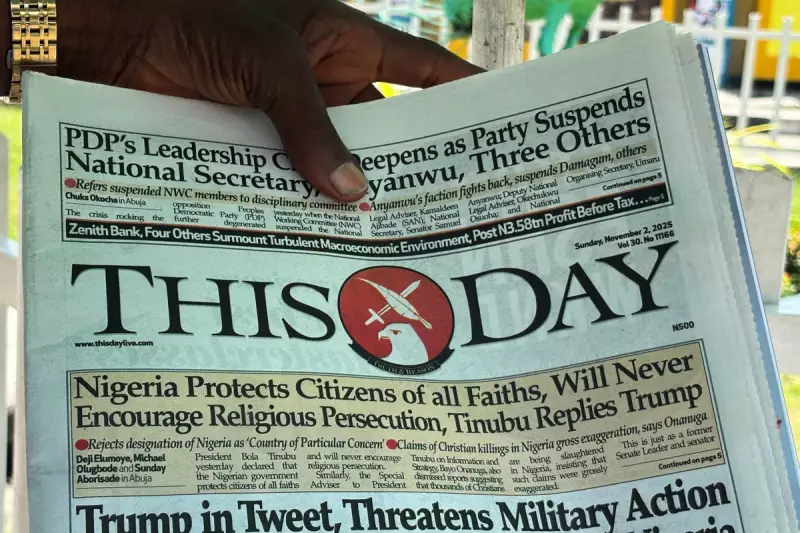
In a controversial speech delivered in Abuja that has sent shockwaves through political and religious circles, former US President Donald Trump has proposed establishing a database to monitor Christians in the United States.
The remarks, made during his international tour, have ignited fierce debate about religious freedom and the boundaries of political discourse.
Crossing the Line: Political Backlash Intensifies
Republican Senator Ted Cruz led the condemnation, describing Trump's proposal as "profoundly un-American" and warning that such rhetoric dangerously echoes religious persecution tactics employed by authoritarian regimes.
Religious organisations across the denominational spectrum have expressed alarm, with many Christian leaders emphasising that while they support measures to protect religious minorities abroad, creating registries based on faith at home represents a fundamental violation of American values.
International Stage, Domestic Consequences
The Abuja comments have particularly stunned observers given Trump's consistent positioning as a defender of Christian values throughout his political career. Critics argue the proposal contradicts his previous stance as a champion of religious liberty.
Legal experts note that such a database would likely face immediate constitutional challenges, citing protections under the First Amendment that prevent the government from tracking citizens based on their religious affiliation.
Election Implications and Divided Reactions
The timing of these remarks, as the American political landscape heats up ahead of another election cycle, has left even some traditional allies scrambling to respond. While Trump's core supporters have largely remained silent on the issue, moderate Republicans and independent voters have expressed deep concern.
Political analysts suggest this incident may further complicate Trump's relationship with religious voters, a demographic crucial to his previous electoral successes.
The controversy continues to develop as more religious and political figures weigh in on what many are calling one of the most provocative statements of Trump's post-presidency.





